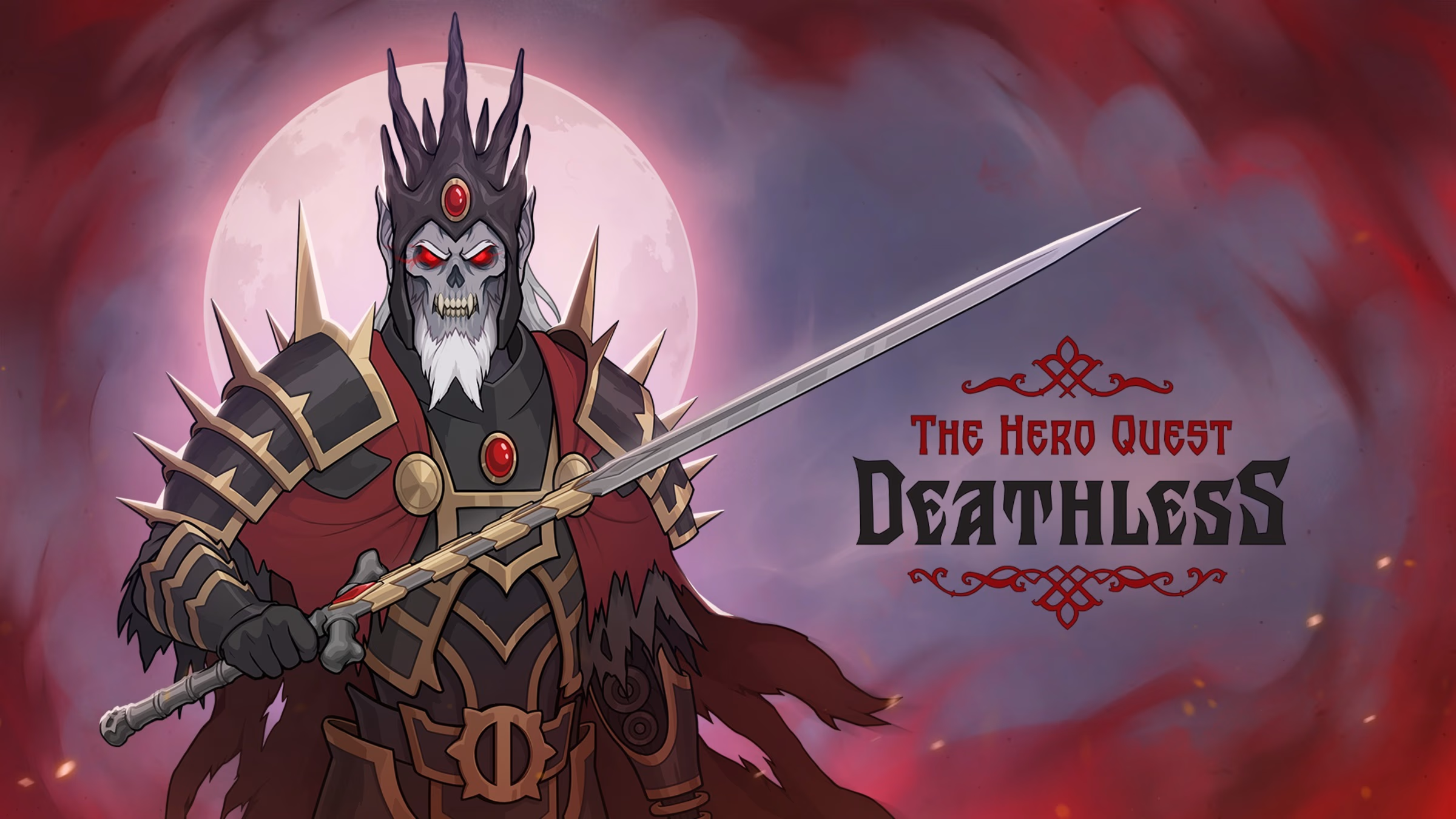The indie roguelike deck-builder space is very common these days. It feels like every month we’re getting a new take on “draw cards, slay monsters, repeat. But every so often, something comes along with a spark of personality and a space that feels fresh even if the core ideas are familiar. That’s where Deathless: The Hero Quest comes in.
Developed by Moonlight Games, Deathless wraps solid card mechanics inside a world of lore, mythical beasts, and grim fairy-tale energy. It’s stylish, surprisingly deep and fun to tinker with. There are plenty options to tinker with as well as a selection of heroes to choose from to challenge yourself.
Deathless is set in the world cursed by the immortal witch Koschei and haunted by spirits, revenants, and spooky surroundings. Each of your runs sends one of four playable heroes on a quest to end Koschei’s reign. The lore borrows heavily from Slavic myth but never gets too in depth just adds to the tonality of the game. The presentation is hand crafted with that spooky storybook aesthetic.
If you’ve played many Deck Building games, you’ll immediately understand the structure here. You start with a small deck of basic cards and move through a branching map filled with battles, events, merchants, and bosses. Win fights, gain cards and relics, and slowly transform your deck into a force to be reckoned with.
Instead of just choosing from random card rewards, you also get opportunities to transform current cards. You can also morph existing cards into new ones of the same type. This is game changing as it means your deck can evolve mid-run instead of getting bloated with filler and turn your run on its head when hit with good RNG.
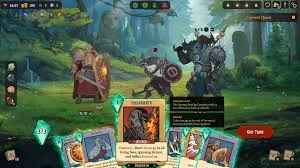
Each character doesn’t just have a few unique cards they feel like they belong to completely different genres of play and make replay ability all that much sweeter.
Varvara the Fair – The Agile Trickster
Varvara’s deck revolves around evasion, speed, and debuffs. Many of her cards reward you for chaining attacks or dodging damage. Think of her as the rogue-type character based on being agile, combo-driven, and very satisfying once her engine’s running. Her builds tend to revolve around momentum: stacking “when you play an Attack card…” effects until you’re dealing out five quick slashes per turn. If you like the dopamine hit of watching a small combo turn into a flurry of blows, she’s your girl.
Vasilisa the Wise – The Elementalist
Vasilisa’s deck leans into magic and passive damage by using elements such as burning, freezing, poisoning enemies over time. She can also generate extra Action Points (AP) through clever card synergies, letting you pull off monster turns that feel you have unlimited power. Her deck has the most complexity and great for players who enjoy setting up big turns rather than instant payoffs
Dobrynya Nikitich – The Tank
Dobrynya is your tank. His deck is built around armour, counter-damage, and patience. He can absorb insane amounts of punishment, making him a great pick for new players. The fun of his playstyle comes from building a deck that scales off defence that not only offers protection but as ammunition. Many of his cards deal damage that turns his defence into offence.
Alyosha of Kitezh – The Jack Of All Trades
Alyosha’s playstyle is melee power and light magic, offering flexibility at a pinch. He doesn’t hit quite as hard as Dobrynya or combo like Varvara, but he can adapt to different enemies and relics more easily. For players who like to experiment or can’t decide what kind of deck they want to run, Alyosha is a solid starting hero.
At first glance, Deathless uses familiar deck-builder ideas: you have Attack, Skill, and Special cards. But the way it categorizes and evolves them gives the system more life.
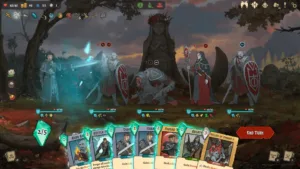
Cards and Deck Building
Cards fall into 4 types:
Attack Cards: Simple damage, sometimes with added effects like Bleed or Burn.
Skill Cards: Buffs, debuffs, card draw, and defence.
Boon Cards: Passive triggers that activate when you meet certain conditions which aid gameplay in a pinch
Grace Cards: Rare, powerful effects that often rely on luck or specific synergies.
At various points in your run, you can upgrade or transform cards. Transformations replace a card with another of the same type, but with potentially huge shifts in power or synergy. You might turn a basic Strike into something that stacks turn based damage or refunds AP, completely changing how your deck flows.
Upgrades are more predictable: they improve card numbers or add secondary effects. Both systems push you to think about deck shape rather than deck size which I found out that the best decks here are lean, efficient, and purpose-built with plenty options in your run to delete cards to make your deck as efficient as possible.
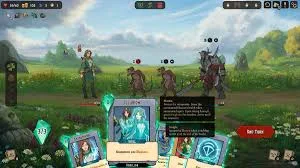
Relics are simple and used in most games mechanics but add another layer. Some are universal buffs (“gain +1 draw each turn”), while others interact with specific deck types (“when you apply a debuff, heal 2 HP”). Picking relics that enhance your synergy feels great, and sometimes they push you into entirely new builds mid-run.
Each encounter plays out turn-by-turn, and like most modern roguelikes, enemies show their attacks before they act. That means every round is a puzzle on whether to defend now or go all-in on damage. For me personally the UI was very overwhelming at first but once you sink time into this you realise the clarity and slowly understand what’s happening. You can click on each characters profile and understand what effects and icons each encounter is capable of and over time you learn the patterns when faced against similar monsters.
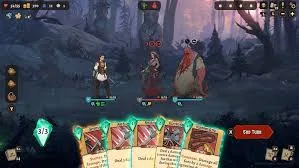
Finishing a run unlocks new cards, relics, and feats for future attempts. The progression system is generous without feeling grindy and you’ll unlock something nearly every run that aid future runs. I found myself struggling the first couple of times but mostly down to understanding what each character and deck has to offer but with each of their own progression trees you unlock cool cards and aids that help you expand and offer make or break cards. You find yourself wanting to come back in explore each character and have a thirst for more.
Overall
-
CX Score - 80%80%
Summary
Pros
- Strong genre execution
- Great heros and playstyle
- ONE MORE GAME loop
Cons
- Pacing Issues
- Little repetitive in boss battles

